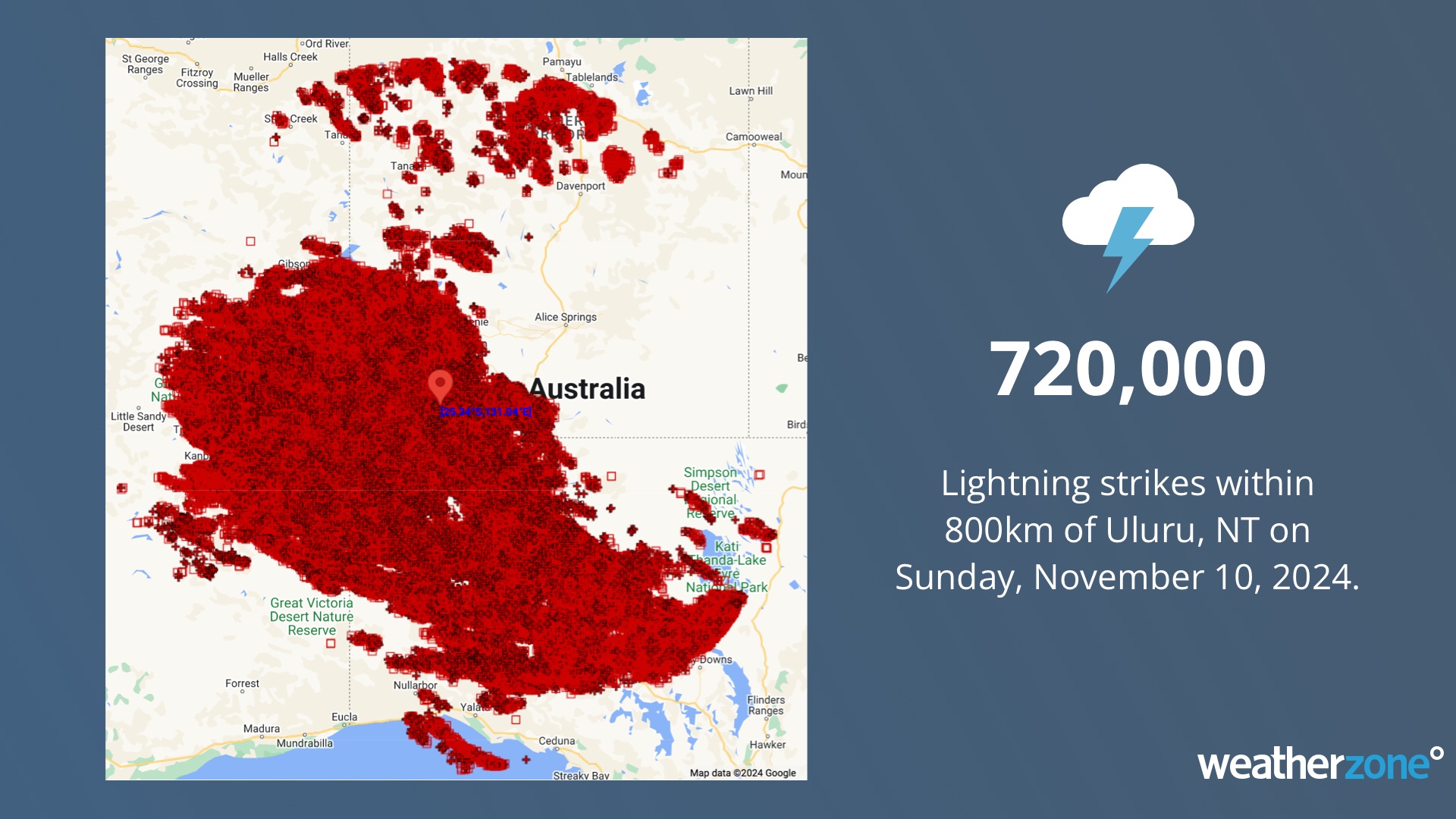Over a million lightning strikes across Australia
Sunday was an explosive day and night across Australian skies, with more than 1.1 million lightning strikes detected by Weatherzone's Total Lightning Network.
Some of the lightning strikes occurred in areas where you expect stormy conditions at this time of year. For example:
- There were 328,627 strikes over southeast Queensland mostly around twilight, where it is not uncommon to see severe storms in mid-to-late spring. Multiple rainfall totals exceeding 50mm were also recorded southeast of Brisbane, with 17.4 mm in the city itself.
- There were approximately 95,000 strikes over northern Australia, where the wet season runs from November to April, so you expect to start seeing storms from about this time of year.
But the most remarkable concentration of storm and lightning activity was in Central Australia and arid parts of South Australia and eastern WA, where any amount of lightning tends to be much less common – let alone such a massive outbreak as occurred overnight.

Image: The Red Centre was red with lightning, as depicted on our map.
- An incredible 719,068 strikes occurred within 800 kilometres of Uluru.
- Rainfall totals exceeding 25mm were recorded at some outback weather stations, while 10 mm was recorded at Yulara, just north of Uluru.
The widespread lightning outbreak was triggered by two troughs, one over Central Australia, the other over the eastern part of the continent. An abundance of humidity and warmth provided the other key ingredients to help trigger the storms.
This stormy weather is not done yet, with potential for plenty more storms this week.
Indeed, we could be facing the stormiest week of spring, with much of eastern Australia likely to see storms, especially on Wednesday in some of the biggest population centres along the east coast.